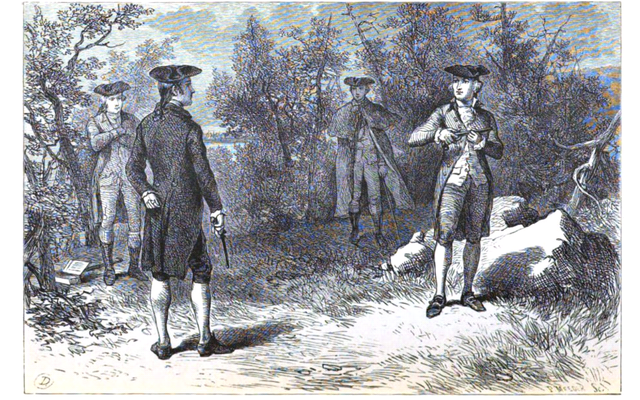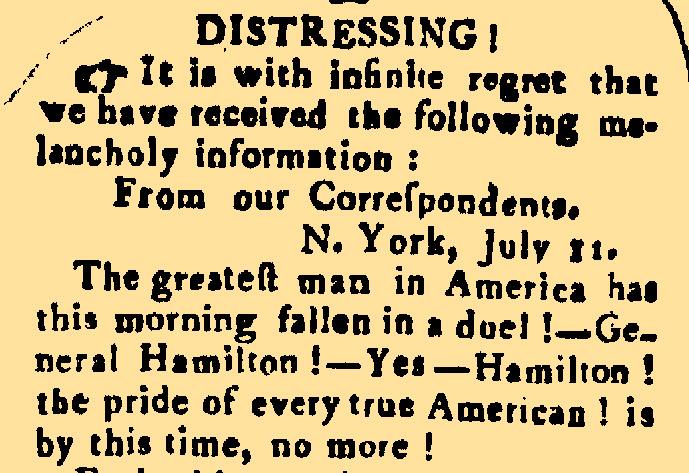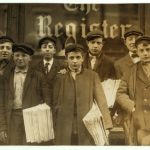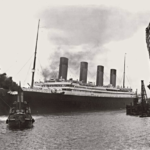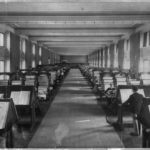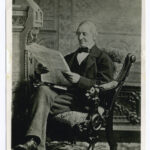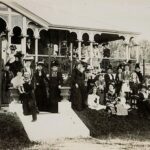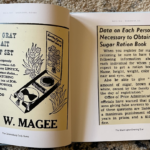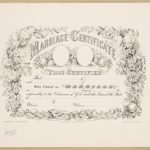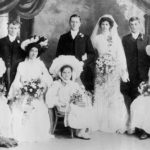With the wildly popular Broadway musical and subsequent film version featured on Disney+, Hamilton has piqued the interest of people everywhere. You know the names Alexander Hamilton and Aaron Burr, and you may be able to sing the lyrics, but do you know how the early American press reported on the famous duel as it happened on July 11, 1804?
Immerse yourself in the same stories read by your ancestors in historic newspapers of the early nineteenth century!
William Peter Van Ness assumed the role of Aaron Burr’s second at the duel, but he also played a more prominent role before that fateful event. In an incredible first-hand narrative told by Mr. Van Ness himself, the July 28, 1804, edition of the Virginia Argus published “The Statement,” which detailed the events that led up to the ill-fated duel.
Multiple articles in a Hagerstown, Maryland newspaper captured the melancholy of the time. One article taken from Jackson’s Register on July 12th depicted the grave nature of Hamilton’s wounds, knowing he was close to breathing his last. It even talked of poor Eliza and how she must have felt with a son going, in the same way, just two years prior.
Another article published originally in the New York Evening Post was written by Reverend Benjamin Moore, who came to be with Hamilton “during the time which elapsed between the fatal end and his departure out of this world.”
A piece titled “Gen. Hamilton’s Funeral” provided a list of the pallbearers and intimate details of the funeral like “on top of the coffin was the General’s hat and sword” and “the four young sons of the deceased…followed the corpse as mourners.”
The Sprig of Liberty from Gettysburg ran an article “Distressed,” which started “The greatest man in America has fallen in a duel!” Be aware when reading this particular periodical. Because of its age, many instances of the medial “s” are used, which can look like the letter “f.” It sometimes makes for tricky reading!
The Kentucky Gazette and General Advertiser published the obituary of Alexander Hamilton on August 7, 1804. The obituary read more like an account of the duel but eloquently described the deep sadness of the country with phrases like “the mournful intelligence of the death of Major General Alexander Hamilton has saddened this city”. It also describes a letter that Hamilton wrote to his wife Eliza regarding his attempt to avoid the duel.
Interested in learning more about Alexander Hamilton, Aaron Burr, or the many other founding fathers of our nation? Try a 7-Day Free Trial of NewspaperArchive.com to read fascinating history as it unfolded.
